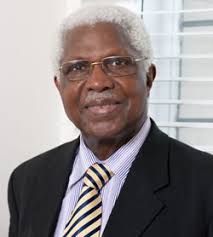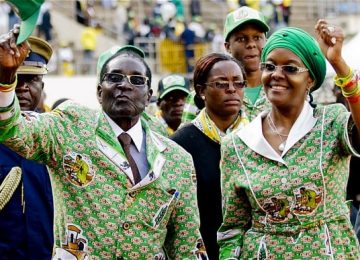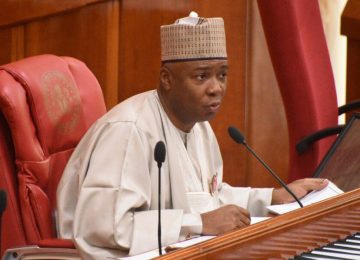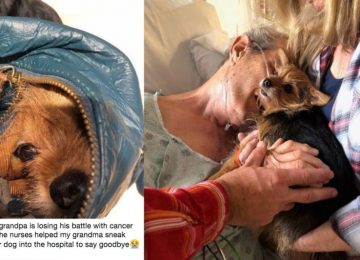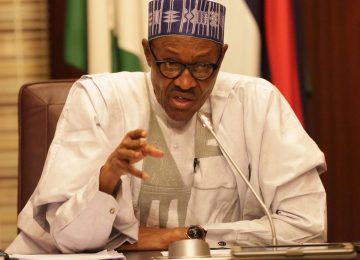When Alexandra Ifeanyichukwu Ekwueme drew his last breath on Saturday night at a London hospital, it was not just a chapter that closed in Nigeria’s history: a library also shut down. Regarded as one of the most educated politicians Nigeria has ever produced, Ekwueme churned out political ideas that have continued to shape the debate around the country’s nationhood.
There is an irony to the timing of his passing. His daughter, Alexandria Chidi Onyemelukwe, had just lost her bid to become deputy governor of Anambra state as running mate to Oseloka Obaze on the platform of Peoples Democratic Party (PDP). Willie Obiano of the All Progressives Grand Alliance (APGA) took his opponents to the cleaners. TheCable understands that Ekwueme was unaware of the development, having not recovered from the coma he slipped into early November. He was flown abroad in an air ambulance.
Maybe governorship is not for the family after all.
When Ekwueme received his LLB and a second PhD in Scotland in 1978, his convocation dinner was attended by a large delegation from the old Anambra state. One person after the other spoke, asking him to come home and be part of the transition to civil rule, as the ban on politics had just been lifted by the military government of Olusegun Obasanjo.
They asked him to contest for the governorship of Anambra state. He was reluctant but he gave two conditions: first, he was really exhausted from his academics and was not in a state of mind to embark on an elaborate campaign, so they would have to undertake to do it for him; second, he had not much money at the time so they would have to raise the funds. They agreed to both conditions.
Pronto, he came back to Nigeria, with the governorship primary just a few days away. But he got a breather, as it were, as it was moved by one week.
ACCIDENTAL VICE-PRESIDENT
Since he was not at home when NPN was formed, it was always going to be a tough call to get the party’s ticket. CC Onoh (father of Bianca Ojukwu) was already on ground nursing his own ambition. He was campaigning then that northern Anambra (Enugu, Abakaliki and Nsukka senatorial districts) should produce the governor, as against the south, made up of Awka and Onitsha districts. The north had 23 local governments, while the south, where Ekwueme came from, had only 15. It was a battle the man with two PhDs would not win.
But life is full of twists and turns.
“This is where God comes into the affairs of men: I lost the governorship ticket at a time when NPN was quite popular here. But shortly after that, Nnamdi Azikiwe came into the picture and it changed all the dynamics and calculations when he became the presidential candidate of the NPP (Nigerian Peoples Party)… if I had won that (NPN) guber primaries, I would have also lost the election for the office of governor,” Ekwueme would say later. Of course, Onoh lost to NPP’s Jim Nwobodo.
BIONOTES
Born on October 21, 1932, Ekwueme started primary school at the St John’s Anglican Central School, at Ekwulobia, then he proceeded to King’s College, Lagos. As an awardee of the Fulbright Scholarship in the US. He one of the first Nigerians to win the award. He attended the University of Washington where he earned bachelor’s degree in architecture and city planning and a master’s degree in urban planning. He also earned degrees in sociology, history, philosophy and law from the University of London. He later proceeded to obtain a Ph.D in architecture from the University of Strathclyde, before gaining the BL (honours) degree from the Nigerian Law School.
Meanwhile, Shehu Shagari, who had just been nominated the presidential candidate of the National Party of Nigeria (NPN) for the 1979 election, was on a vote mobilisation tour of the east. At Enugu, he asked to meet NPN leaders from Imo and Anambra states (today’s Imo, Anambra, Ebonyi, Abia and Enugu states). The meeting took place at Hotel Presidential.
NPN had zoned the vice-presidential slot to the east, so it was also time to discuss potential candidates. Shagari told both states to nominate candidates by consensus, and he would then pick one based on the decision of the executive committee of the party. Anambra nominated Ekwueme — in fact, Onoh nominated him and it was unanimously supported — while Imo nominated Macaulay Nwankwo. Both nominees were friends. Shagari got their resumes.
Campaign done and dusted in the east, the Shagari train headed for Benue state. At the Anambra-Enugu border, the unexpected happened — according to Ekwueme.
“When we got to the border, the people from Benue state were waiting to receive Shagari and we parked, did some back-slapping and just while all that was happening, Shagari drew me aside and said he wanted to tell me himself and that he would like us to work together once the NEC approves, that he wants to work with me; but he said I should still keep it to myself. I thanked him right there at the border; but again, something very interesting happened. As we were returning to our state, some people who were still interested in the job still went with him to Benue state and all along with the campaign until he came back to Lagos,” Ekwueme told Vanguard in an interview in 2009.
CONTROVERSIAL DONATION
Politics and controversy are bedfellows, and Ekwueme was soon baptised in ways he did not expect. Having been picked by Shagari, he was just waiting for the ratification and official nomination when a politician alleged that he had donated N2 million (which, using the exchange rate factor, would be nearly N800 million today) to the party. The gist was that he had bought the VP slot.
He explained what happened thereafter.
“Before that January 1983 NEC meeting of the NPN where the ticket would be ratified, a national newspaper of that day had a front page picture of the man with a bold inscription: Gunning for NPN Vice Presidential Ticket. By the next day when it had become public that I got it, they asked him what happened. He just said I gave the party N2 million to get the ticket so that was how the issue of N2 million came about; but as at that time, I had not given even one kobo to anybody,” Ekwueme said.
He actually donated N1 million after he had been officially named as the vice-presidential candidate.
“When we were about commencing campaigns, people were looking for money and as running mate I should be able to contribute something so I sold some properties of mine in Palmgrove (Lagos) and made a donation of N1 million to the campaign,” he said.
SERVING SHAGARI
As vice-president, he had his fears and limitations. One fear was the possibility of a coup. The history of coup in Nigeria was filled with blood, and he feared he would not be safe if the past was going to be a pointer. One limitation was that as VP, he would have virtually nothing to do. The glory goes to the president, and the blame goes round.
But he had a very good relationship with Shagari by his own admission. It did not start on a rosy note, though.
“Actually on the first council meeting, where memos were brought up for discussion and some of the memos came for signature where some ministers had to sign, some for the President, after the session and because the ministers had just been appointed, almost all the memos came under the signature of President Shagari. During the meeting I said nothing, not because I had nothing to say but I just chose to say nothing,” he said years later.
“When we finished, the president came to me and asked why I didn’t make contributions to the discussions and the signing and I told him that first, it would be very embarrassing for him and for the government if he brought a memo to council and I demolished it and that I am sure that if I did that and, based on logic and sound reasoning, the council would agree with me but that would appear as if the presidency was not working together. I told him that I would rather we discuss the memo before hand and by the time we get to council, it would be easier to handle.
“He said that since the memos come from various places, if we have to go through all the memos at council, it would take time but that he would appreciate it if I took a very good look at the memos the way they come and make my input the way I saw it good or bad and that he wouldn’t consider it embarrassing if I demolished any memo brought to council. And so we agreed and began to work on that basis.”
It may need reminding that while Ekwueme boasted of many degrees, Shagari only trained as a teacher although with a lot of political experience, having been minister in the 1960s.
The Shagari government was overthrown by the military on December 31, 1983. Muhammadu Buhari, a major-general, became head of state. Ekwueme, who spent 20 months in detention at Kirikiri prisons — much of it without access to TV, newspapers and radio — would later be blamed for the ills of the Shagari administration by Buhari.
But the Justice Uwaifo panel, set up by the military government of Ibrahim Babangida, a general, set him free with these famous words: “Dr. Ekwueme left office poorer than he was when he entered it, and to ask more from him was to set a standard which even saints could not meet.”
LIKE ZIK, LIKE ABIOLA
After he was set free, he did not participate in politics under Babangida, who was banning and unbanning “old breed” politicians at every turn. After the annulment of June 12 1993 presidential election, Nigeria descended into a crippling crisis, and Babangida left power unceremoniously.
An interim government, headed by Ernest Shonekan, was installed to midwife a new transition, but the crisis only got worse. At this stage, Ekwueme came back into the limelight to play the role of a statesman.
He called a press conference and proposed what many people would laugh at — that Nigeria should produce a new constitution and write specifically that MKO Abiola, the winner of the annulled election, would be the first president under that constitution.
At the press conference he held at Ikoyi Hotel, Lagos, he said the same way Azikiwe was mentioned by name in the 1963 Constitution as the president of Nigeria, it should be written that “Abiola shall be the President of Nigeria and there shall be vice-presidents from the different geo-political zones” under his proposed constitution.
It sounded ridiculous. Nobody listened to him. Besides, Nigeria was on fire, and the powers that be would rather eat sand than give Abiola any break.
RETURN TO POLITICS
Shonekan was eventually removed in what was clearly a military coup and Sani Abacha, a general, took over. Nigeria returned to a full-fledged military regime. One of the first things Abacha did was to set up a constitutional conference to write a new constitution for Nigeria. Ekwueme was nominated into the conference. He was back in the game.
At the constitutional conference, he championed many proposals to reshape Nigeria politically, create a more equatable system and reduce the perennial tension in the land. He suggested a six-zone structure (which is now effectively in operation in Nigeria). He asked for rotational presidency between the zones and a single term of five years. A sitting president should not be a candidate for re-election, but he could return to contest in the future.
Ekwueme also suggested that each zone should have a vice-president, and in the event that the sitting president has to leave office — by impeachment, resignation or death — he would be replaced by the vice-president from his zone. This was to allay the fears of any zone losing power accidentally, as it happened when President Umaru Musa Yar’Adua died in 2010 and the north lost the presidency barely in three years.
The most controversial proposal from him was that the core of the military should be decentralised to prevent coup plots. But he was accused of proposing regional armies and this was seen as an attempt to break up the country. The Igbo demanded a confederacy before the civil war broke out in 1967, and such a “decentralised military” proposal coming from another Igboman was bound to be treated with suspicion.
As Abacha began to show signs that he was not interested in a genuine transition to democracy but wanted to transmute from military dictator to civilian president — as the fad was in many African countries then — Ekwueme began to align with top politicians to fight Abacha. It was a dangerous game but he survived.
He was a key brain behind the G-34 group that wrote to Abacha to demand a return to democracy, and when Abacha eventually died, the group metamorphosed into the PDP which became the dominant party from 1999 to 2015. Ekwueme twice sought to be the party’s presidential candidate in 1999 and 2003, but he was defeated by Obasanjo on both occasions.
Although aggrieved at the way things went, he remained a member of the party till the end. (thecable.ng)

